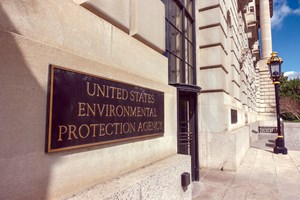EPA expands technical assistance program to improve wastewater infrastructure nationwide
(UI) – The U.S. Environmental Protection Agency announced the expansion of its Closing America’s Wastewater Access Gap Community Initiative to 150 additional communities as part of President Biden’s Investing in America agenda. Originally launched in partnership with the U.S. Department of Agriculture, the initiative partners with underserved communities to provide technical assistance on accessing federal wastewater funding. The pilot initiative has been assisting 11 communities since 2022.

“Many rural and low-income communities in the U.S. lack basic running water and indoor plumbing, and our Closing America’s Wastewater Access Gap Program has been instrumental in helping communities from White Hall, Alabama to McDowell County, West Virginia to the San Carlos Apache Tribe in Arizona access Bipartisan Infrastructure Law funding to address this critical need,” said EPA Assistant Administrator for Water Radhika Fox. “In expanding the program to 150 additional communities, we are working to restore dignity and opportunity to underserved communities nationwide.”
“As local communities seek to continuously improve the quality, safety, and reliability of their water utilities, they often struggle to also address challenges of declining rate bases, lower-income households, and other competing local needs,” said Rep. Grace Napolitano (CA-31), Ranking Member of the House Transportation and Infrastructure Subcommittee on Water Resources and Environment. “All of these factors compel us to find ways to make water quality improvements more affordable.”
Closing America’s Wastewater Access Gap Community Initiative
An estimated 2 million people in the U.S. live without adequate wastewater infrastructure and safe and reliable drinking water in their homes. Many more live with wastewater infrastructure that is ineffective and puts people’s health at risk.
To date, the Closing America’s Wastewater Access Gap initiative has helped provide communities with no-cost technical assistance that helps identify affordable options for accessing wastewater infrastructure.
For example, technical assistance providers help the community conduct assessments of the community’s specific needs and submit applications for wastewater funding. So far, progress for the 11 pilot communities includes seven funding awards and 10 additional funding applications.
All 11 communities have drafted community solution plans, which are in the process of being finalized, and will be posted to EPA’s Closing America's Wastewater Access Gap webpage in the early spring.
In Lowndes County, Alabama, children and families are exposed to raw sewage in their own homes. Yards regularly flood with sewage from straight pipes or from broken pipes that clog when it rains. However, with the help of EPA’s technical assistance, known as “WaterTA,” the community of White Hall successfully applied for federal funding and received $450,000 to help accelerate their wastewater infrastructure goals.
The San Carlos Apache Tribe is another one of the 11 communities from the initial pilot. Nearly two-thirds of the homes on the San Carlos Apache Indian Reservation do not have access to centralized wastewater systems and rely on inadequate onsite systems, like septic tanks.
Through the Closing America’s Wastewater Access Gap pilot, the Tribe has secured funding to pump septic tanks in need of servicing and is working with technical assistance providers to develop educational campaigns on wastewater management and septic system maintenance.
Related News
From Archive

- Glenfarne Alaska LNG targets late-2026 construction start for 807-mile pipeline project
- U.S. water reuse boom to fuel $47 billion in infrastructure spending through 2035
- $2.3 billion approved to construct 236-mile Texas-to-Gulf gas pipeline
- Major water pipe break in Puerto Rico hits over 165,000 customers
- Potomac River Tunnel project enters construction phase beneath Washington, D.C.
- Pennsylvania American Water launches interactive map to identify, replace lead water service lines
- Trump's tariffs drive $33 million cost increase for Cincinnati sewer project
- Utah city launches historic $70 million tunnel project using box jacking under active rail line
- Tulsa residents warned after sewer lines damaged by boring work
- Fatal trench collapse halts sewer construction in Massachusetts; two workers hospitalized



Comments